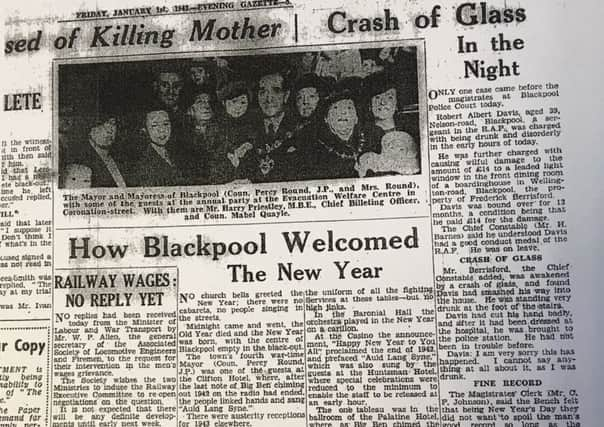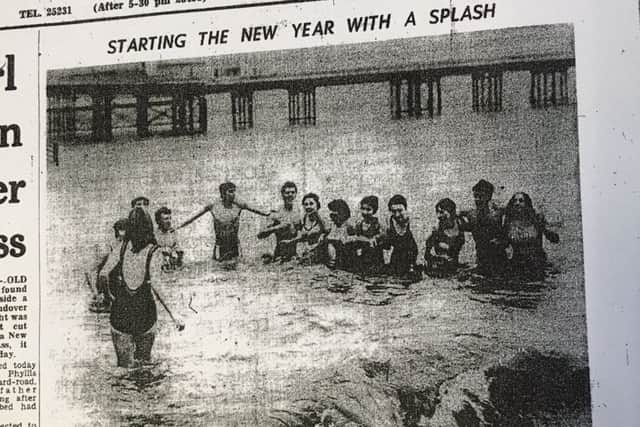How New Year's celebrations changed over the last century


And indeed, in the end, it was.
The Gazette’s New Year message on January 1, 1918, called for peace – but not “one designed by the enemy of all mankind in crafty terms.” The paper lamented the difficulties in getting hold of food such as butter, margarine, lard, bacon, tea and sugar. But told readers: “Nevertheless, we shall face the music that is, in the hope that glees and madrigals will take the place of blare and crash, guns and groans, before the year is out. In heartily wishing we may each have a New Year of good things, I think of what we owe to the boys in undeviating loyalty.”
In 1943, The Gazette reported: “No church bells greeted New Year; there were no cabarets, no people singing on the streets. Midnight came and went, the Old Year died and the New Year was born, with the centre of Blackpool empty in the black-out.”


Advertisement
Hide AdAdvertisement
Hide AdIt was Blackpool’s fourth New Year of the Second World War and there were austerity receptions to see in 1943, like everywhere else in the country. There were events at the Clifton Hotel and the Casino and Baronial Hall of the Winter Gardens, where Auld Lang Sang was played – but there were “no high jinks”.
The Gazette reported: “Blackpool went to bed an hour or two earlier than it had in the day of peace. But it was a happy New Year’s Eve.”
Fifty years ago, the front page picture for the New Year Gazette was of members of the Blackpool Lifeguards taking their annual New Year dip in the sea at North Shore. And the Ministry of Transport announced work would soon begin on an extra 2.34 miles of the M6 – between Thrimby and Hackthorpe, in Westmoreland.
Just 25 years ago, a war was being fought against drink-driving, as The Gazette revealed more motorists tested positive on New Year’s Eve, despite the force’s extensive anti-drink-drive campaign – with 14 per cent of those tested failing the breath test.